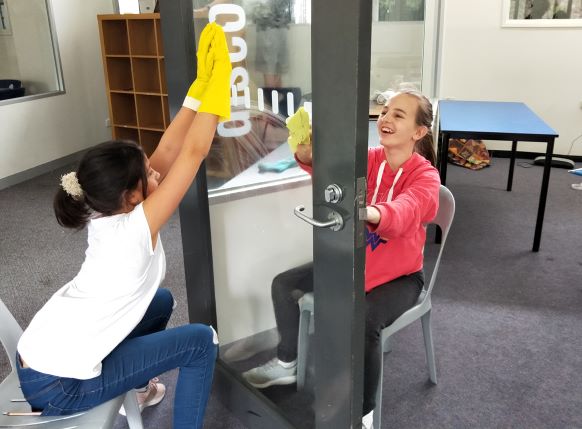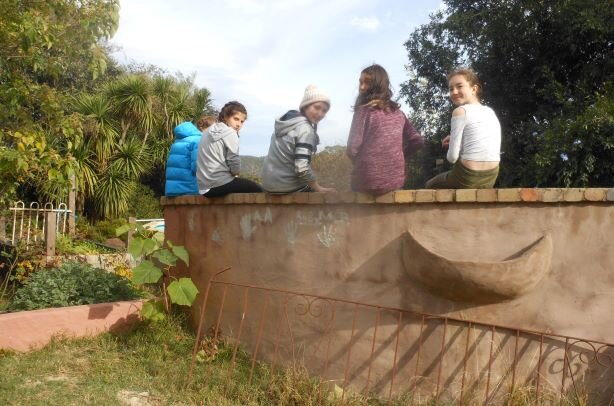Growing within Society and Community
It is difficult to comprehend that during the time of physical, emotional, and intellectual turmoil called adolescence, most cultures immobilise children behind desks rather than let them put their energies into meaningful projects. We focus on their increasing role in the world and in their various local and social communities.
Participating in the Adult World
Maria Montessori described adolescents as “adults in waiting”. To support them we need to create adult structures for them to participate in. Key components of the program include Community Meetings; Seminars; Management Positions; Micro-Economy; Debating; Q&A; Social Justice Immersions; and Off-Campus Organisation. These provide a chance for students to participate directly in the functioning of their surroundings while learning the importance of active engagement in a community.
Micro-Economy: students learn the importance of self-sufficiency through the creation and administration of a Micro-Economy on the campus. This is already a strong focus of TC and the Entrepreneurship elective.
Language/Humanities: students are encouraged to debate, defend, share, assert, converse, and challenge the presented content. Often content is presented with provocation in mind, to stimulate discussion and disagreement.
Social Justice: MAP students immerse themselves for 48 hours in Slum Survivor or Refugee Reality, giving them insights into conditions beyond their immediate experience.
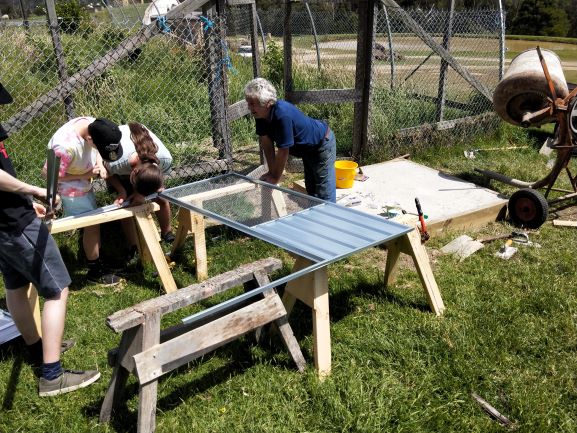
Building community
At this age, friends are critical to every facet of an adolescent’s happiness. To capitalise on that, the Montessori program incorporates many options for socialising that are integral to their learning. Students participate in group presentations at the end of every cycle. Across the curriculum students are encouraged to debate, defend, share, assert, converse, and challenge the presented content. A full half of the curriculum is delivered in small group settings, with the expectation of “collaborate; don’t separate”. Students learn to practice acceptance, equity, sharing responsibility, accountability. The vast majority of student groups for study are either deliberately selected by staff or randomly generated by chance cards. This widens social circles to spread the community across the entire group.
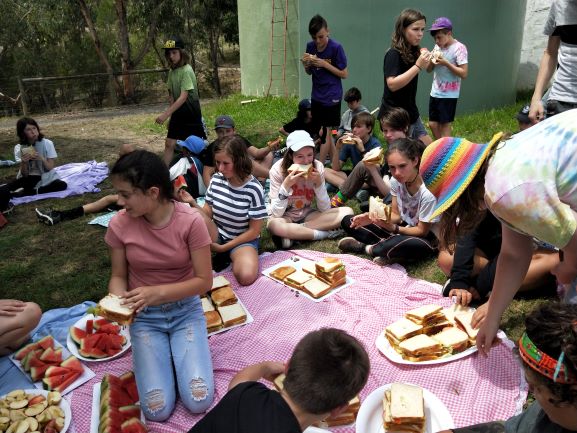
Leadership and service to others
Leadership programs and experience in schools traditionally promote alpha types and are filled by ‘leaders’ with no followers. Learning the true skills of leading, communicating and uniting a team is vital and best done experientially. MAP@TC leaders are not chosen, but emerge. As good leadership requires patience, understanding and humility, the concept of service to others is at the fore of many of our activities. Community service is a regular part of the program. Work on the farm is for the benefit of the farm. The adolescents give service to others in the community, mentoring pre-school students and sharing with elders in aged care facilities. They liaise with local organisations such as councils, libraries, bush sites, animal shelters, community gardens, nursing homes, community centres and more.
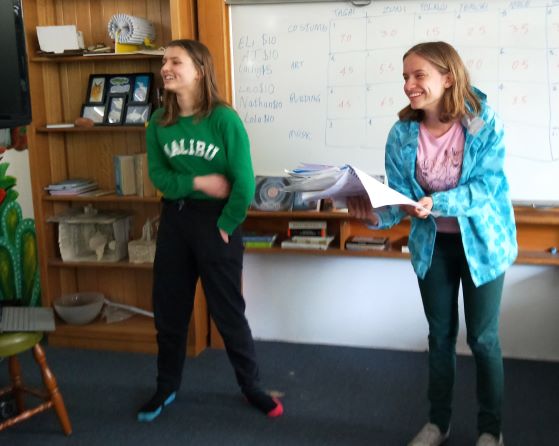
Theatre Tour
The MAP@TC Theatre Tour is an extraordinary undertaking and experience. The production cycle is a term-length project that culminates in the performance of a theatrical production to a dozen different audiences in a dozen different locations. It provides opportunities for learning about drama as an art form and practicing theatrical skills. It requires the development of self-confidence and public speaking. It offers opportunities for self-expression through design, construction and dramatic performance. The adolescent’s need for real work, an authentic third period to the learning, is satisfied by performing the work for other schools and unknown audiences. The final performance script is created by students through writing exercises, role-plays and workshops. Finally, the experience of working together to create something much bigger than anyone could do alone produces a powerful sense of cohesion and mutual appreciation within the class community.
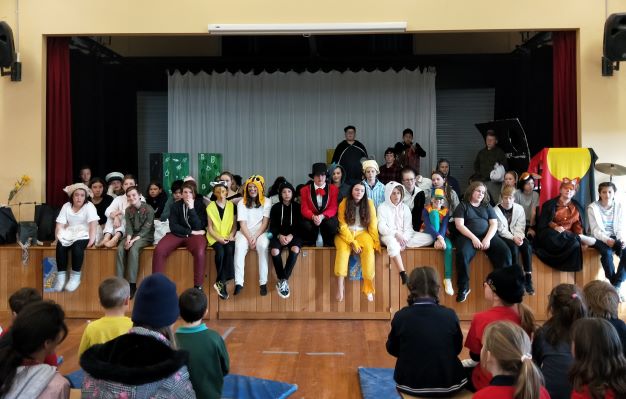
Caring for their environment
Within Montessori, the word “environment” traditionally encompasses the building, learning area, gardens and all associated materials. The adolescent environment specifically includes the students and adults as materials. The adolescent environment must provide a comfort zone and shelter, while at the same time being stimulating and thought-provoking. It must allow calm for the guide to have control and for the students to present and project their individual work and character. An essential part of preparation for adult society is the effort from students to care for and maintain this environment, both physically and socially. While there is a focus on the physical environment at the end of each learning day, the care they show for their whole environment should be continuous and prideful.
